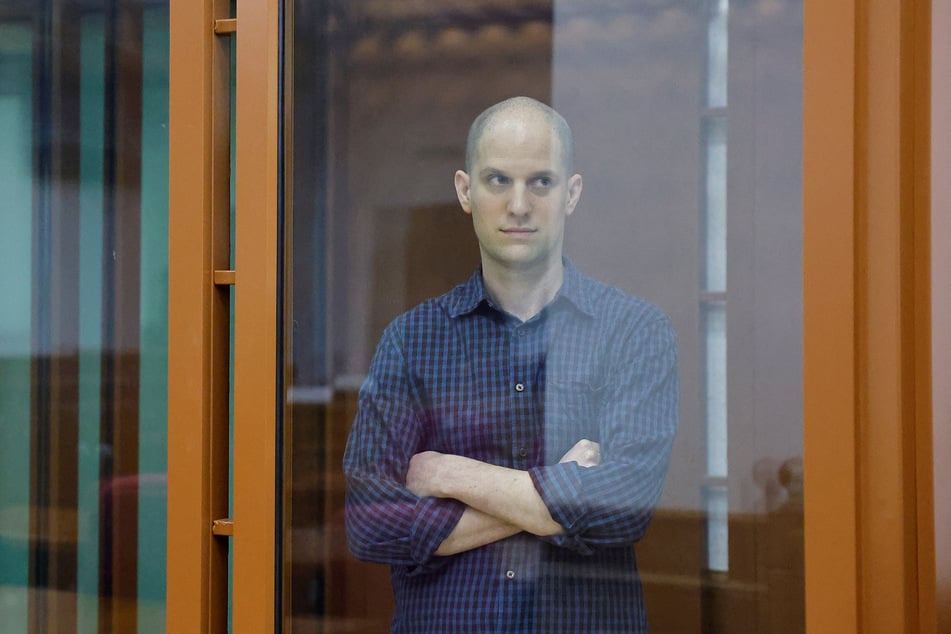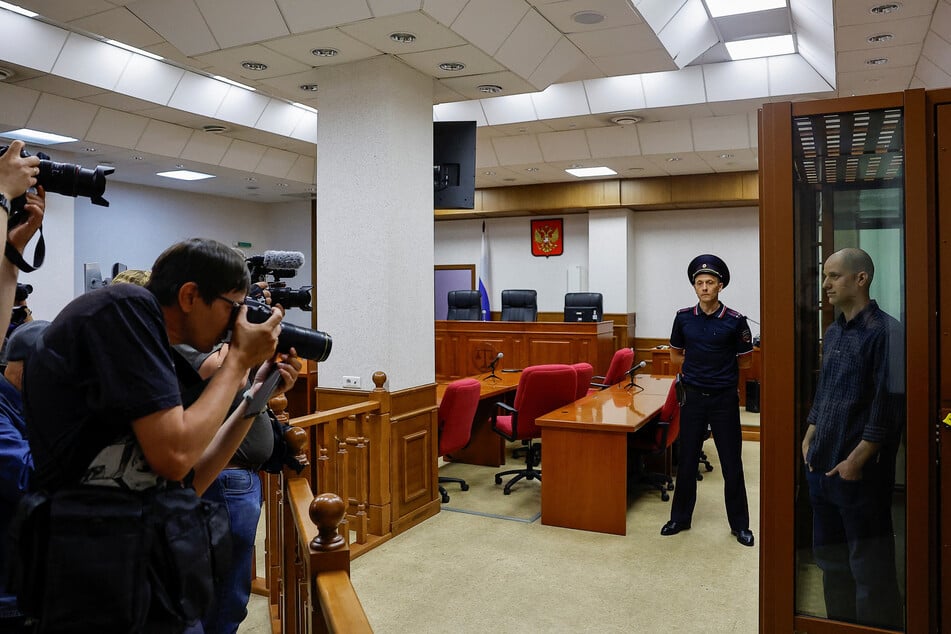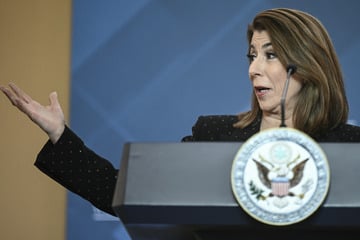Evan Gershkovich's trial begins as Russia drops hint about "signals" to US
Moscow, Russia - Wall Street Journal reporter Evan Gershkovich's closed-door espionage trial in Russia began Wednesday, 15 months after he was arrested on charges that he, his newspaper, and the White House reject as false.

Moscow and Washington have both said they are open to a deal to exchange the journalist, and a senior Russian diplomat said Wednesday that the US should "seriously consider the signals" that Russia has sent their way.
Gershkovich became the first Western journalist to be arrested for spying in Russia since the Cold War when he was detained in March 2023 on a reporting trip to the Urals city of Yekaterinburg.
On Wednesday, he was briefly shown to reporters before the trial began in Yekaterinburg's Sverdlovsk Regional Court, smiling while standing in a glass cage with a completely shaved head.
He was then taken away for the start of court proceedings, held in private, as is typical for espionage trials in Russia.
Russia's penitentiary service refused to disclose to AFP where he would be held after the proceedings or why his hair had been cut.
The Kremlin has provided no public evidence for the allegations, saying only that he was caught "red-handed." Washington says the claims are fabricated.
If convicted, Gershkovich could face up to 20 years in a penal colony.
He has already spent almost 15 months in Moscow's notorious Lefortovo prison since his arrest.
Russia sends "signals" of potential prisoner swap

The Wall Street Journal has called the trial a "sham," while the US Embassy called for his immediate release.
"This trial is not about evidence, due process or the rule of law. It is about the Kremlin's use of American citizens to achieve its political goals," the embassy said.
The media rights group Reporters Without Borders said there was "no evidence to support Russia's allegations."
"On the contrary, there is every reason to believe that the Kremlin is holding him in order to carry out a future prisoner exchange," the group's US executive director Clayton Weimers said.
Washington has accused Moscow of arresting its citizens on baseless charges to use them as bargaining chips to secure the release of Russians convicted abroad.
The Kremlin declined to comment on a possible prisoner swap Wednesday.
But hours after the trial opened, a top Russian diplomat said Moscow had sent signals to the US about a possible deal.
The US "should still seriously consider the signals that they in Washington received through the relevant channels," Deputy Foreign Minister Sergei Ryabkov told Russian news agencies, without elaborating.
Last week, Moscow said it was waiting for a response from Washington on proposals Russia had presented for a possible exchange.
Cover photo: REUTERS

